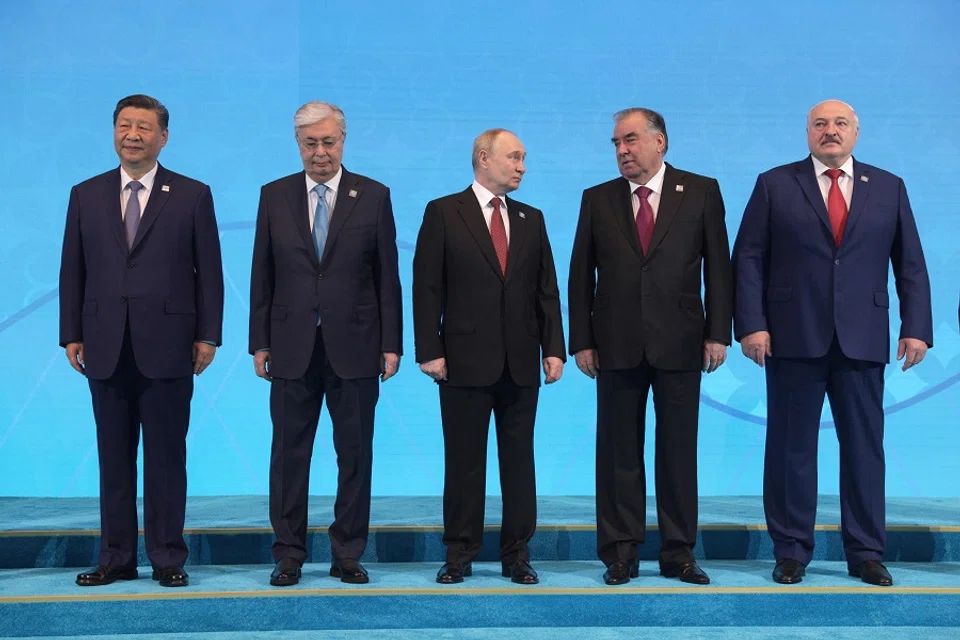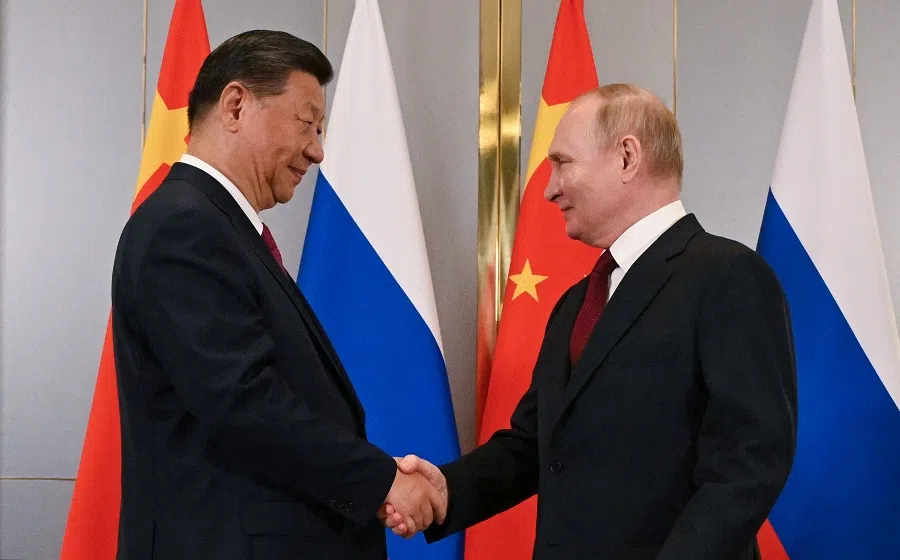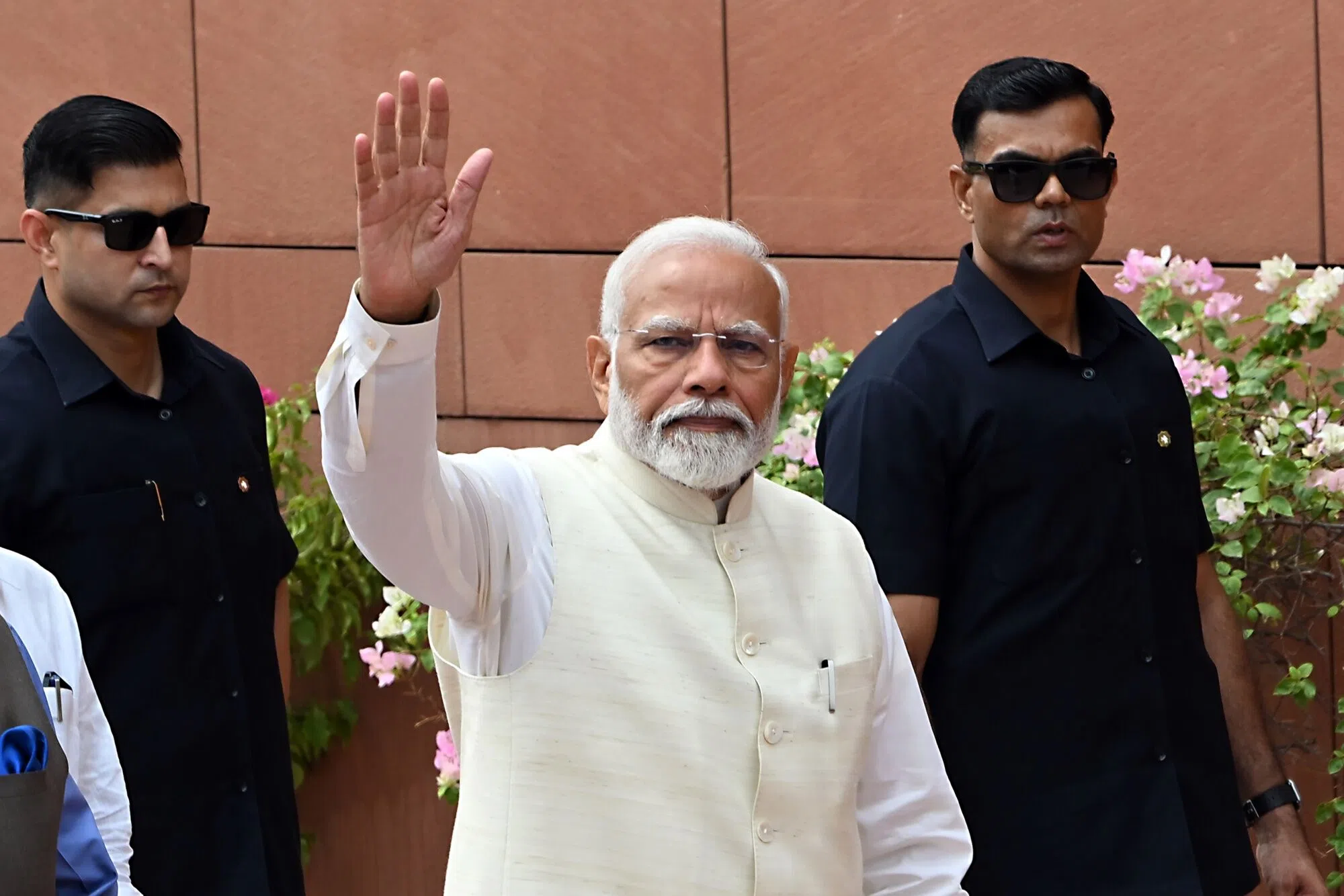SCO: Internal power dynamics stifle progress
Even as India moves closer to the US and further away from China, it is strategically engaging Russia. Such complex ties in the Shanghai Cooperation Organisation may derail the grouping, says academic Amitendu Palit.

The 24th Meeting of the Council of Heads of State of the Shanghai Cooperation Organisation (SCO) was held at Astana in Kazakhstan on 3-4 July. The meeting was closely watched due to the presence of the Chinese and Russian presidents at a common forum. It was also noteworthy that the Indian Prime Minister Narendra Modi did not attend the meeting.
The SCO is a Eurasian grouping and comprises several significant global powers. Its members include China, India, Iran, Kazakhstan, Kyrgyzstan, Pakistan, Russia, Tajikistan and Uzbekistan. In the latest meeting, Belarus joined as the tenth member state. The group has several dialogue partners, which include Turkey, Qatar, Saudi Arabia, United Arab Emirates, Israel and Egypt. The SCO’s rising strategic prominence is noted from the fact that quite a few countries, such as Bangladesh, Israel, Iraq, Algeria, Syria and Laos, have applied to join the group.
Russia-China friendliness on show at SCO summit
The Astana Declaration adopted at the meeting emphasised the group’s role in promoting global peace and stability. It further emphasised the importance of settling disputes through peaceful consultations. While not indicating any substantive economic agenda, it reiterated the importance of SCO members choosing their respective individual socioeconomic development paths. Finally, noting the group’s strategic importance in a multipolar world order, members agreed to expand its international influence.
The geopolitical significance of the summit was highlighted by the close engagement on display between Russian President Vladimir Putin and Chinese President Xi Jinping.

The geopolitical significance of the summit was highlighted by the close engagement on display between Russian President Vladimir Putin and Chinese President Xi Jinping. The strategic proximity between China and Russia has rapidly increased since the outbreak of the Covid-19 pandemic and the subsequent conflict between Russia and Ukraine. Sanctions on Russia imposed by the US and its allies have led to sharp growth in trade between Russia and China.
With the US being a common adversary, Russia and China have begun cooperating on a wide range of strategic issues. They have also been taking common positions on several issues, most notably on Ukraine, which has been visible in global forums such as the G20. It was therefore hardly surprising that the two leaders, who were meeting for the second time in two months, described their expanding bilateral partnership as being in its “best period in history”.
There could be several reasons behind his [Modi’s] absence. One of the most plausible ones could be avoiding sharing the same forum with the Chinese president.
India may be uncomfortable with SCO’s direction
Many might think that the SCO is positioning itself firmly as a counterpoint to the US and its Western allies, primarily the North Atlantic Treaty Organisation (NATO) members. While such an impression might not be incorrect, particularly from a China-Russia combined perspective, there are other SCO members, such as India, which would be uncomfortable if the SCO indeed moves down a decided anti-US path.
Indian Prime Minister Narendra Modi, who was sworn into office for a consecutive 3rd term early last month, did not attend the SCO meeting. There could be several reasons behind his absence. One of the most plausible ones could be avoiding sharing the same forum with the Chinese president. It is noteworthy that President Xi did not attend the G20 Leaders’ Summit held in Delhi in September 2023.

Chinese and Indian bilateral ties have been seriously damaged in recent years. The military clash in the high Himalayas in mid-2020 that led to the loss of several lives on both sides has left very deep scars on the relations. While both sides have worked to de-escalate military tensions and discuss ways of resolving the contention border issue, their political hostility has not been reduced.
Various global and regional factors have been contributing to the persistence of the hostility. These include India’s active role in formalising a collaborative multi-faceted security architecture in the Indo-Pacific with the US and its allies, known as the Quad; a deep and close comprehensive strategic partnership between the US and India that covers various critical areas of cooperation, including defence; the growing strategic distance between the US and China; and China’s enlarging strategic economic presence in India’s maritime neighbourhood of the Indian Ocean in countries like Maldives and Sri Lanka.
India’s worsening ties with China but closer ties with Russia
The complex China-India relations will affect the SCO’s progress. However, there is another interesting dynamic that will have a bearing on the progress of the SCO. India’s proximity to the US and worsening ties with China have been accompanied by an increase in its strategic engagement with Russia.
While not attending the SCO summit, Prime Minister Modi will be visiting Russia over the next few days at the invitation of President Putin. It is ironic that while being political adversaries of each other, on the issue of Ukraine, India and China have been broadly similar in their postures, refusing to condemn Russia.
In some respects, India’s growing proximity to Russia, a country with whom it had strong ties during the Cold War, raises concerns for the US. However, the US’s relationship with India remains crucial for advancing its interests in Asia and the Indo-Pacific, as well as for balancing China.
India, while working closely with the US on several issues of mutual interest, is not hesitant to engage with Russia. In doing so, India recognises Russia’s role as a balancing factor in its complex relations with China.
Despite being around for several years, it [the SCO] has not been able to position itself as a group that can be identified by its commitment to a distinct global or regional issue.
The intricacies of global power dynamics are actively playing out in organisations like the SCO where countries with contrasting security and strategic interests figure together. One of the inevitable outcomes of the coexistence of such contrasts is the difficulty these organisations face in developing meaningful work agendas. The SCO is a distinct example.
Despite being around for several years, it has not been able to position itself as a group that can be identified by its commitment to a distinct global or regional issue. It has remained limited to broad and vacuous announcements and is likely to stay so as long as the internal conflicting power dynamics persist.





